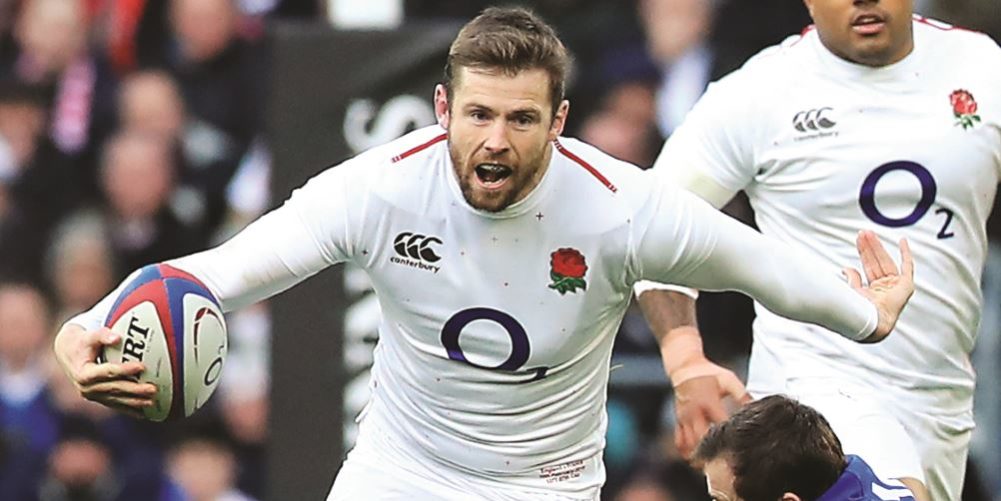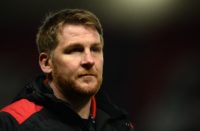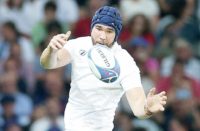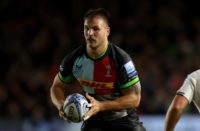By Jeremy Guscott
England repeat their intensity of the Ireland game, they will provide a huge challenge for Wales to contain in Cardiff on Saturday. I favour another England away win, but I do not believe Wales will be as poor as they were against France in the first half, or overall against Italy.
I am not sure Wales have enough ball-carriers to bombard England, so they will have to be smarter about how they counter them. What Wales will have to work on is luring England into having to make two-man tackles, and then get quick ball and attack them around the edges.
The build-up in Wales this week will be all about here come the English again, thinking they are the ‘Daddies' – but we're going to smash you!
Warren Gatland, Shaun Edwards and Neil Jenkins will be saying the big boys are coming to batter you, and asking their players, “how big is your heart”? They will be looking to tap into that Welsh “hwyl”, and prove everyone wrong.
It will be a case of “let's show them”, and seeing whether England can deal with the expectation of coming to Cardiff with another Grand Slam on the cards, and getting a win. In 2013 England came looking for a Slam in the last round and got done over – and that happened when Rob Howley was caretaker coach because Gatland was on Lions duty.
The choice facing Wales is to be as poor as they have been up to now, or to be unbelievable. There will be space for Wales around the big tackles England make on the fringes, but going for offloads is too risky, so they will be reliant on getting quick ball from those rucks.
England go into the game without two important forward carriers with the injuries to Mako Vunipola and Maro Itoje, but can Wales take advantage?
We have not seen enough from Wales to truly say that they have got this one. They have Ken Owens, Alun Wyn Jones and Ross Moriarty up front, and backs of the quality of Jonathan Davies, George North and Leigh Halfpenny, if he plays, who can produce against anybody, as they have shown over the years.
Wales will say no one gave us a chance in 2013, and look what happened. However, they have not shown anything close to that overall quality so far in this Six Nations.
They also have to contend with an England side which is bang in form, with Elliot Daly a real danger man at full-back.
It would be an exaggeration to say that I had misgivings regarding the selection of Daly at full-back against Ireland, but there is no doubt there were concerns about the ability of the England back three to cope with high ball.
In the end it was a brave selection, and it's been proved correct. Daly has made a big improvement since the autumn, and credit to Eddie Jones for bringing in Aussie Rules expert, Neil Craig, to work with him and Jonny May.
The aerial game is huge in the modern era, and if May starts taking high balls on the run he will be remembered for years to come – whereas if he only runs onto balls that are passed to him he probably will not be.
Daly has too much skill not to know how to take the ball in the air at full-back, but the difference is that very little you do at training, or at club level, compares to the intensity at international level. Your whole build-up is on another planet to what you're used to with your club, and you have a different level of coaching and of players around you.
There are few bigger tests in international rugby at the moment than against Ireland, and Daly came through very well. For now he has closed the lid on the full-back jar – but just how tightly, only time will tell.
Now his challenge is to be good on a regular basis, in a more rounded way. These days skilful mavericks like Daly have to adapt to the team more than in the past, when players like David Campese – and later Shane Williams – found their teams adapted more to them.
A Kyle Sinckler, Itoje, or Mako and Billy Vunipola offer something different to England because of their range of skills set.
Owen Farrell is not quite the same, but he works so hard to make improvements that he has made himself indispensable.
However, whoever is picked in the backline you would find a place for Daly, simply because he has that ability to create something out of nothing. The reality is that he will probably always be a bit vulnerable under the high ball, meaning that if you put Daly – or anyone – one-on-one against Israel Folau, then you would back Folau to win it nine times out of ten.
Daly may have the lid on the England full-back position, but it's not locked down, mainly because of his size. Going up for a high ball is such a key skill because there are so many variables – the strength of the wind, whether it's soft underfoot, if you are hit in the air, how many chasers, or blockers, are targeting you – and those factors can be magnified in an intimidating place like Cardiff.
However, for a long time I've said that Daly is one of the most gifted players in the Northern Hemisphere, if not the most gifted. He's played a lot of rugby this season, including two full games in the Six Nations so far.
The reason he is unlikely to be exposed in the same way that Robbie Henshaw and Yoann Huget have been is because he reads the game so well, and he is also very quick and can get himself out of jail.
Daly's tackle percentage is not great, but often that's because at full-back you are more exposed than anyone other than wing – and they usually have a man on the inside for support. By the same token the change we've seen in May's defence is thanks to the work he has done on his technique and timing, and Daly has to work on his one-on-one defence in the same way.
The good news for Daly is that apart from Dan Biggar, Wales don't stand out for me as a kick-chase side. Hadleigh Parkes, Davies and North are not brilliant chasers.
Rugby fans want to see their team scoring tries, and the older ones will remember the buzz of anticipation when running full-backs came into the line. These days it happens less, but Stuart Hogg still does it for Scotland – and Daly can do the same for England.
He is also able to attack from loose kicks because of his feelgood touch. England should get the ball in Daly's hands a whole lot more, but at least he gets it more at 15 than he did when he was on the wing.
He may get the chance to play at 13 at some stage, especially with Anthony Watson coming back. But looking at the World Cup there will always be a place for him in the starting line-up, whether it is still at 15, at wing, or in his club position at outside-centre.
It means that, going forward, Chris Ashton and Jack Nowell will have to be playing their best rugby to be considered in the back three.
Wales have two intelligent midfield defenders in Parkes and Davies, but on the wing North can be exposed.
Davies is the defensive fulcrum for Wales. If you can keep him guessing then you are cooking – because Parkes is not the quickest across the field. Wales are heavily reliant on Davies stopping that England back three, because he is renowned as a great organiser and a fine stopper.
The challenge for the England back three is how to isolate Davies, so that there are numbers either on his inside or outside.
The advantage England have is that Wales do not have a Manu Tuilagi. The guy attracts so much interest, and on the evidence of what England did against Ireland and France, it means that if Gareth Anscombe is at fly-half, then he and Parkes have to concentrate on Tuilagi – leaving Davies short of support.
Shaun Edwards will have a strategy to stop Tuilagi, and the Welsh will back their fitness and technique to overcome the England attack. But the Welsh defence would miss Leigh Halfpenny at 15, because his positional play is outstanding.
England have scored ten tries in two games, but one of those against Ireland was fortunate, and France were bad defensively. I don't believe that Wales will worry about England's kicking game over much – it is much more about how narrow the Welsh defence becomes given the damage England's back three can do


























